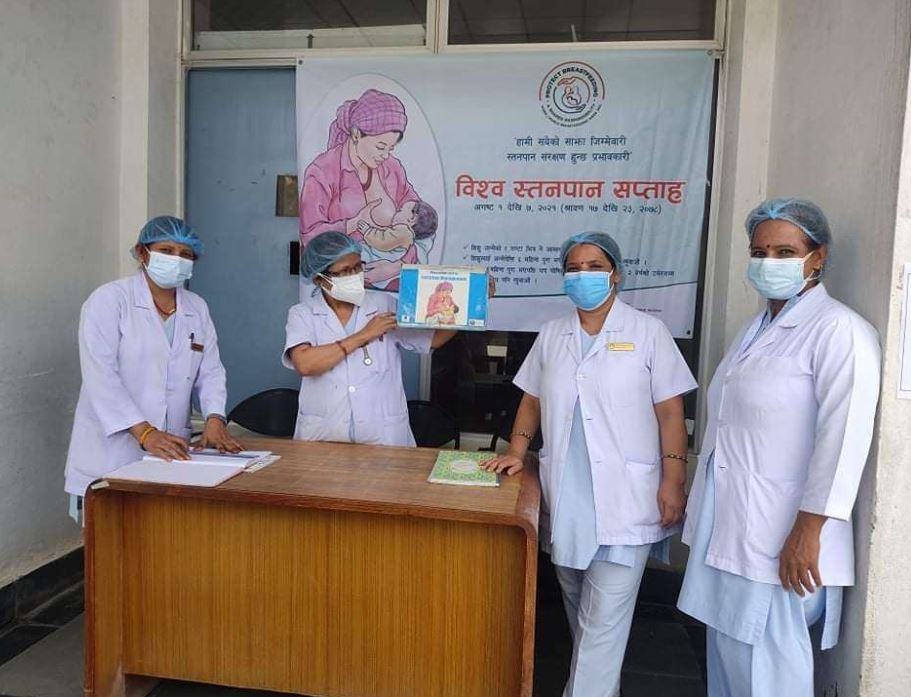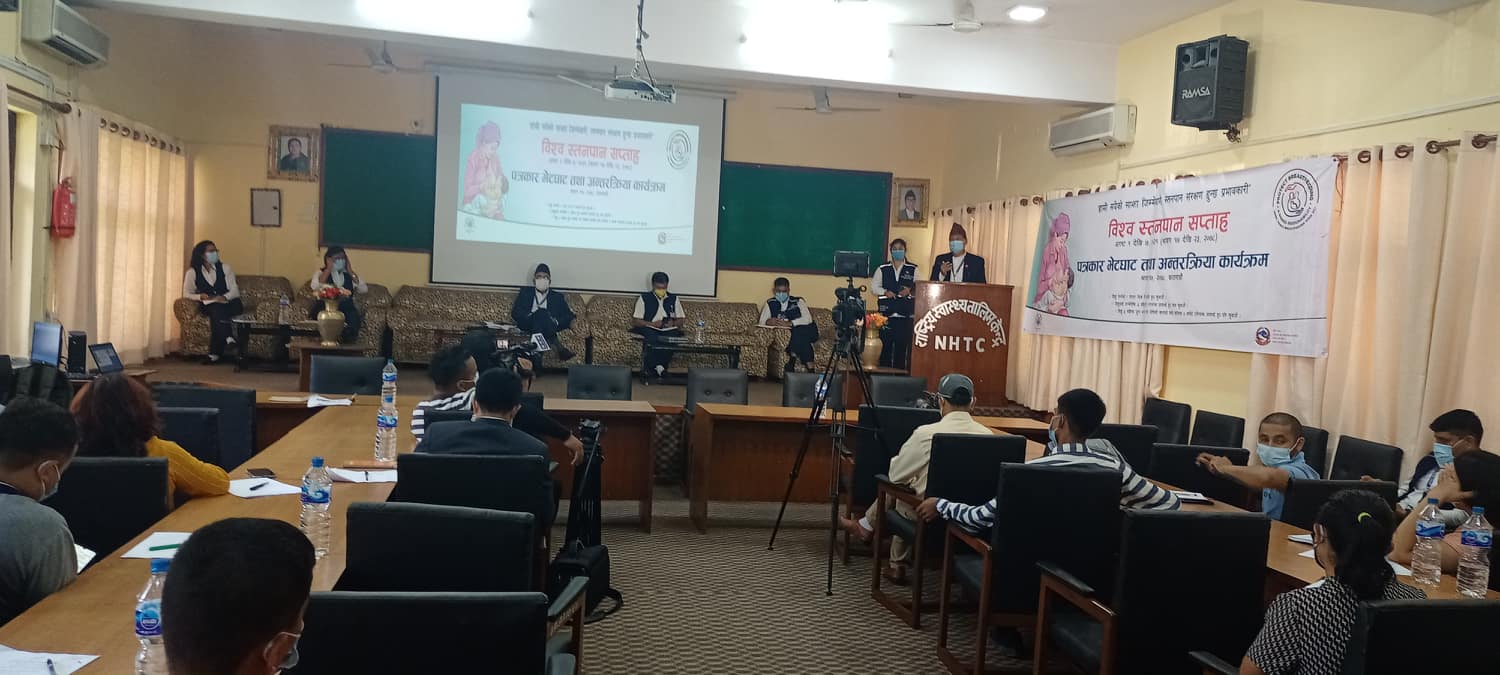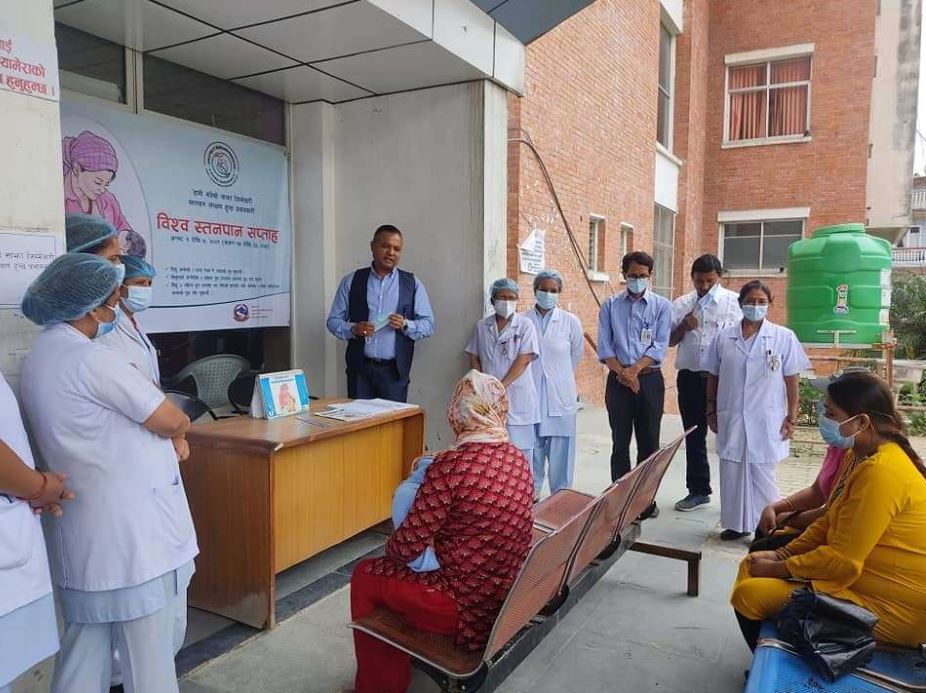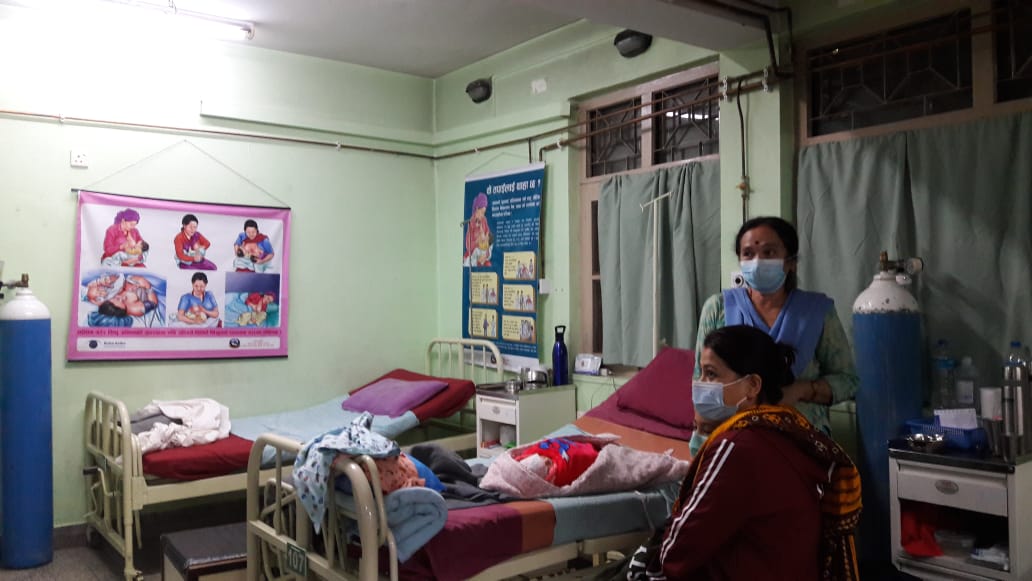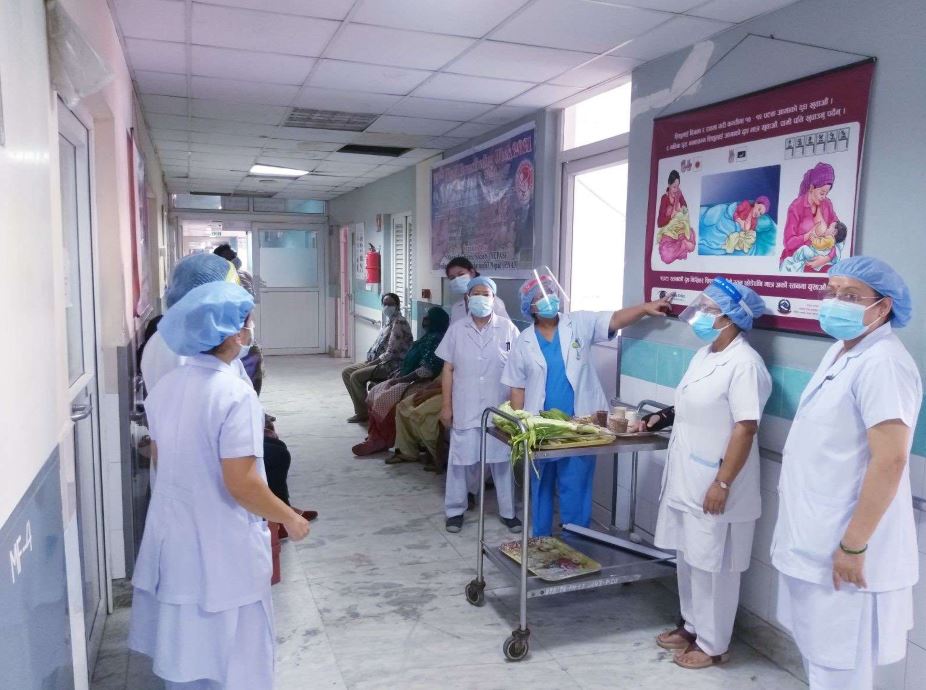The Global Breastfeeding Collective published a compendium of case studies that provide current, real-world examples of how countries, programs, and initiatives have successfully improved access to skilled breastfeeding counselling. Each case study addresses one of the Collective’s calls to action and provides practical guidance and lessons learned to help others replicate their success.
Since 2013, Helen Keller International’s Assessment and Research in Child Feeding (ARCH) project has collaborated with Nepal’s Ministry of Health and Population, Child Health Division to provide evidence and resources to strengthen Nepal’s policy landscape to better protect, promote and support optimal infant and young child feeding.
From December 2013 to February 2014, Helen Keller International/ARCH —in collaboration with Nepal’s Ministry of Health and Population, Child Health Division—implemented a study to assess mothers’ exposure to promotions for and utilization of breastmilk substitutes in Kathmandu Valley, Nepal. The study found:
- Pre-lacteal feeding, the provision of liquids other than breastmilk in the first three days after delivery, was prevalent, with over half of mothers discharged after delivery reporting pre-lacteal feeding for their newborn.
- Over 40% of mothers reported that infant formula was recommended by health workers in hospitals.
- Only 41% of newborns were breastfed within the hour and immediate initiation of skin-to-skin contact with the newborn was low, occurring among less than 9% of mothers who had just delivered.
- Doctors and nurses had no awareness of the Mother’s Milk Substitute (Control of Sale and Distribution) Act, which adopted the International Code of Marketing of Breast-milk Substitutes into national policy.
As a response to these concerning findings, the Ministry of Health and Population and ARCH created a Lactation Management Training (LMT) manual for maternity and neonate staff, and led Breastmilk Substitute (BMS) Act orientation in ten hospitals. These hospitals represent over 90% of facility births in Kathmandu Valley.
The LMT was designed using the WHO and UNICEF Infant and Young Child Feeding training package and adapted for the Nepalese context with the help of local experts including pediatricians, obstetricians/gynecologists, nurses, and public health professionals. The three-day training curriculum focused on the mother-newborn dyad in an early postpartum hospital setting and aimed to equip nurses with up-to-date knowledge and skills to improve breastfeeding support among mothers in maternity and neonatal wards.
ARCH trained 47 master trainers – including senior health workers from the participating hospitals – to conduct the training for nurses. These master trainers ultimately rolled out 24 batches of training and trained 575 nurses.
Background on the Mother’s Milk Substitutes Act and ARCH’s involvement
In 1992, Nepal passed the Mother’s Milk Substitutes (Control of Sale and Distribution) Act to regulate the sale, distribution and promotion of substitutes for breastmilk within Nepal, in an effort to protect and promote breastfeeding.
With assistance from ARCH in 2015, a Breastfeeding Committee was formed in each of the ten health facilities. The Breastfeeding Committee supervises practices to promote, protect and support optimal breastfeeding within each health facility. Committee members oversee and ensure health workers’ compliance with the Mother’s Milk Substitutes Act and ensure that breastfeeding counselling is provided during the mother’s antenatal care visit.
ARCH has continuously supported these health facilities by conducting assessments and gathering data. ARCH has also participated in World Breastfeeding Week activities every year in Nepal, providing information, education, and communication materials to health facilities.
Each year, the Ministry of Health and Population, Family Welfare Division holds a stakeholders’ meeting including UNICEF, Helen Keller Intl/ARCH, SUAHHARA, Food and Agriculture Organization (FAO), World Health Organization (WHO), and World Food Programme (WFP) in preparation of World Breastfeeding Week to determine key themes and activities. In the 2021 stakeholder meeting, ARCH suggested holding a Mother’s Milk Substitutes Act webinar. The webinar was a success, with over 350 people attending from district hospitals, zonal hospitals, private hospitals, medical colleges, public health centers and government bodies along with other development partners.
ARCH designed World Breastfeeding Week banners for the Ministry of Health and Population and to be displayed in ten Kathmandu Valley hospitals. These banners have been used for media events, placed in front of government buildings, and displayed in public spaces for general sensitization and awareness of breastfeeding support. In September 2021, a new awareness banner explaining the Mother’s Milk Substitutes Act and the provisions pertaining to health workers was distributed to Kathmandu Valley hospitals and hospitals beyond the valley.
ARCH Nepal’s successful LMT work resulted in doctors and nurses reporting that they were limiting their recommendations for the use of infant formula to only medically needed cases. Training participants also reported being aware of the Mother’s Milk Substitute Act. By adapting the LMT package to geographic and cultural context, there is great potential for improving optimal breastfeeding practices in hospitals elsewhere.
Enabling mothers to access quality breastfeeding counselling involves a concerted effort by government stakeholders, civil society, and health professionals. Those working within these various sectors will find the examples, like the ARCH Nepal LMT work, in the new Compendium of Skilled Breastfeeding Counselling Case Studies provide insightful guidance on ways to improve breastfeeding.
Read more about ARCH Nepal’s experience providing training for skilled breastfeeding counselling and other practical breastfeeding support case studies from around the world here.

